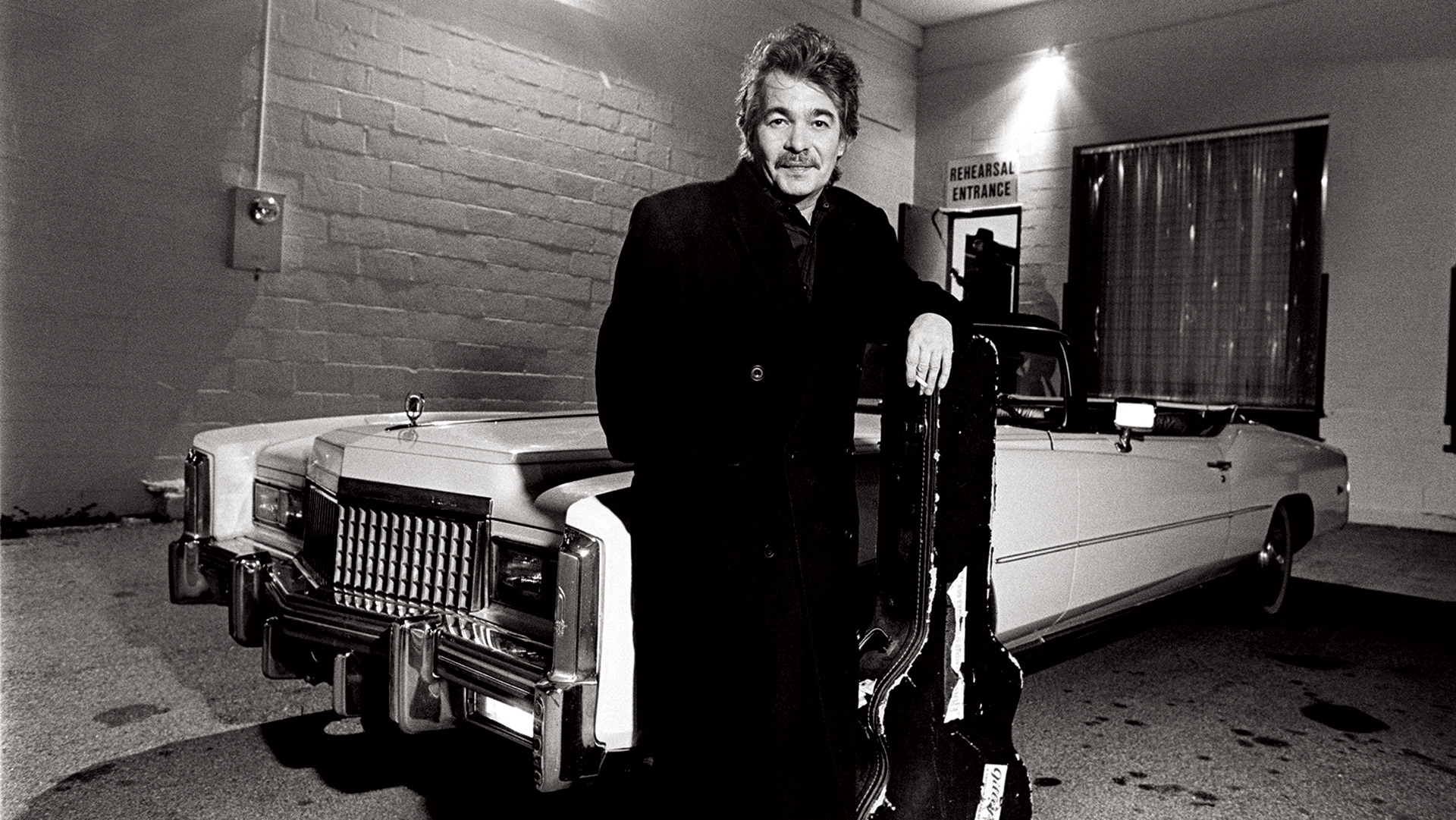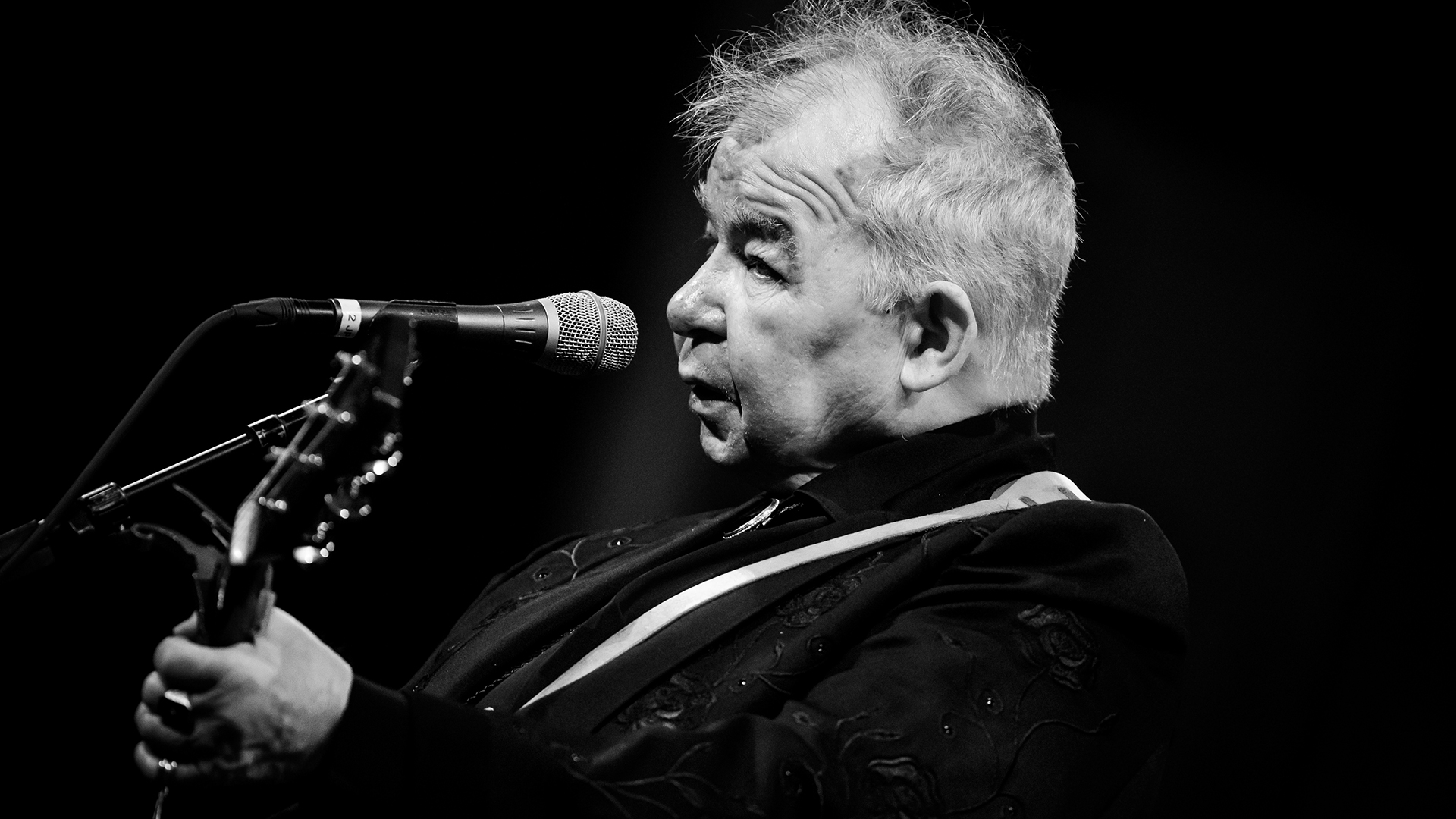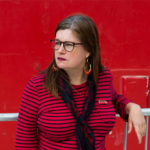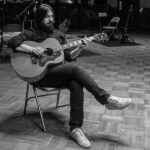
Under the Tree of Forgiveness
An early excerpt from the upcoming book “Prine on Prine”—one of John Prine’s final interviews, with the man who produced his final album.
Paradise, Kentucky, sat on the western bank of the Green River. You’re probably too young to have been there. The Tennessee Valley Authority tore it down in 1967.
Eight years earlier, the TVA had built the Paradise Fossil Plant, a coal-burning power plant fueled by anthracite stripped-mined by the Peabody Coal Company. Shortly thereafter, fumes from the plant started making people sick in Paradise, so the TVA paid to relocate the living and tore down their town.
If you’ve never heard that little story, you probably have heard of Mr. Peabody.
And Daddy, won’t you take me back to Muhlenberg County?
Down by the Green River where Paradise lay
Well, I’m sorry, my son, but you’re too late in asking
Mister Peabody’s coal train has hauled it away
“Paradise” was the first John Prine song I ever heard. A guy down the hall in my freshman dorm liked to play folk songs on his guitar. Like “Paradise.” Hearing him sing it sent me across the street to the record store to buy Prine’s first album, which had come out in 1971. Wish I had a buck for every time I sat in his room, among a crowd of freshman singing “Paradise.”
Prine grew up in Chicago, but we always knew he was a son of the South; his roots were so deep in Kentucky coal country. His songs told us stories we knew. To many, like me, John Prine’s music was a soundtrack to our lives. And we were heartbroken when he succumbed to COVID-19 in 2020. But how fitting it was that his brilliant final album, 2018’s The Tree of Forgiveness, ended with a song called “When I Get to Heaven.”
Longtime Salvation South contributor Holly Gleason, an award-winning music writer, has spent the last several years editing a collection called Prine on Prine: Interviews and Encounters With John Prine, which will hit bookstores September 12. No music writer alive could be better equipped to edit this volume; Holly began writing about Prine—and building a long friendship with him—forty years ago.
The book begins with the story that introduced Prine to the world—the legendary film critic Roger Ebert’s piece, “Singing Mailman Who Delivers a Powerful Message in a Few Words,” from 1970. Prine was, in fact, delivering the U.S. Mail in Westchester, fifteen miles west of Chicago, when he began playing his songs in a few clubs in the city. Ebert’s piece says: “He’s only been performing professionally since July, he sings at the out-of-the-way Fifth Peg, 858 W. Armitage, and country-folk singers aren’t exactly putting rock out of business. But Prine is good.”
“I have a million neckties at home, and each of them, I can tell you what restaurant I wore them to, because they got different sauces on the front.”
When dear John was laid to rest fifty years later, no one could argue that Ebert had been right.
The following conversation is between Prine and Dave Cobb, who produced The Tree of Forgiveness. It was originally broadcast on Sirius XM in 2018, just before Tree was released. During their conversation, Prine performed several songs. To approximate that experience for you, we’ve embedded those songs (both Spotify and Apple Music, your choice) at the points in the conversation when Prine played them.
Holly Gleason’s own editor’s note from the book precedes the conversation.
—Chuck Reece
John Prine was having such a good time, touring with a new wave of artists, enjoying his family and making people happy, he might not have made another record. But [his wife] Fiona Prine knew it was time; she spoke with emerging uberproducer Dave Cobb.
Cobb, who’d been on a roll with award-winning and genre-defying albums for Jason Isbell, Chris Stapleton, and Brandi Carlile, seemed the perfect choice. Sensitive to songs but a fan of finding the soul in the recording, if anyone could midwife Prine’s first album in almost a decade and a half, Cobb could.
The Tree of Forgiveness was magic. Whether the power-strumming opener “Knockin’ on Your Screen Door,” the minor-keyed and foreboding “Caravan of Fools,” the retro-whimsical “Egg & Daughter Nite, Lincoln, Nebraska, 1967 (Crazy Bone),” with its barrelhouse piano and walking upright bass, or the yearning invitation “Summer’s End,” Cobb created temperate musical environs for the songs. Sensitive but not wimpy, it was a modern classic.
Prine had always been a favorite of SiriusXM’s Outlaw Country, and program director Jeremy Tepper wanted something special to launch Tree when it was released in 2018. No stranger to the network’s playlists, Cobb himself was a perfect pick to host a special dedicated to what would be Prine’s final studio recording. The 2020 Grammy nominee for Producer of the Year crafted a conversation with his friend that was like stopping by Arnold’s on meatloaf day.
—Holly Gleason

[John Prine sings “Knocking on Your Screen Door.”]
John Prine: Hi, this is John Prine, right here on Outlaw Country. On SiriusXM.
[Prine sings “Caravan of Fools.”]
Prine: Hi, this is John Prine, on SiriusXM, sitting here talking with producer Dave Cobb about my new record The Tree of Forgiveness. “Caravan of Fools,” I wrote with Pat McLaughlin and Dan Auerbach; none of us discussed what the song was about. To me, it’s about impending doom. Like when you start a song in a minor key, you’re already admitting that somebody’s sick or somebody’s about to die, you know? Happy songs don’t work in minor keys, you know, starting in E minor and say, “We’re getting married in the morning…”
Dave Cobb: That’s a scary song, that “Caravan of Fools,” though….
Prine: It is! Ominous. The voice and guitar are so huge, I don’t know how you got it sounding that big. You must have put me in a shoebox or something.
Cobb: Pro Tools! … No, that’s that way you sing it. Man, there’s nothing hiding behind the curtain.
Prine: I thought it was really cool, over at [RCA] Studio A. I didn’t really know that much about it, but when I walked in, it just felt right. I like really big areas; I like…being in the center of the room with plenty of room around me. That’s why I brought my Christmas tree down, ’cause when I found out we could turn all the little lights up and sing to the Christmas tree, that’s when things got…
Cobb: You did, didn’t you?
Prine: That’s when things got really warm in there! We got some really warm vocals. Jack Clement took me to—we cut something in the Seventies over at Woodland [Sound Studios]. That room had the same sort of feeling; you walked in, and it was just cool. You could tell some really cool music had went on there, a lot of people had probably just hung around over at Woodland. There’s a couple of studios around town that have that feel, if they haven’t been torn down.
Cobb: The thing about Studio A is the guy who bought the place has a bunch of pictures. He’s done all this research, but there’s more pictures of the parties than there are the sessions. So I think it was pretty much a party palace.
Prine: Well, we did our share of parties.
Cobb: Yeah, yeah….
COMMERCIAL BREAK
Prine: This is John Prine, I’m here on SiriusXM, sitting here with producer Dave Cobb about my new record The Tree of Forgiveness. This next song has kind of a misleading title to it. I wanted to get the history behind the song; it’s called “Egg & Daughter Nite, Lincoln, Nebraska 1967.” Then, it’s also known as “Crazy Bone.” I was fishing north central Arkansas, where I’ve been going since I was 14 years old. My buddy John Earl—John used to be the guitar tech for the Everly Brothers—me and him were sitting in a boat floating down a river, drinking cold beer, and the fish ain’t biting. So, John gets to telling me a shaggy-dog story about when he was a teenager in Nebraska. He said they used to go hang out down at the roller rink on Thursday nights. The boys called it Egg & Daughter Nite ’cause the egg farmers would come to town and drop their daughters at the roller rink, and the city boys—the big city of Norfolk, Nebraska—they were all wise, and kind of, you know, whatever boys and girls do. The farmers would go off and sell the eggs, come back and pick their daughters up later. And I just thought, “Egg & Daughter Nite,” that’d make a great name for a song.
So, I explained the story two years later to Pat McLaughlin, and I said, “Pat, how in the hell can I tell that in a song?” Pat said, “Easy.” He grabs his guitar, and goes, “If you’re stuck up in Alaska, you should be in Nebraska, on a Thursday when it’s Egg & Daughter Nite.”
I thought, “How come it takes me so long to tell the story when Pat can do it in two lines?” So we just attacked the song, and it’s actually true—if you look it up, there was such a thing as Egg & Daughter Night. I thought my buddy made it up entirely just to pass the time on the river.
So, this is it. “Egg & Daughter Nite, Lincoln, Nebraska.” I got the name of the town wrong, it should be Norfolk, but there’s a line that says, “If they knew what you was thinkin’, they’da run you outta Lincoln,” and I didn’t want to change that line. This is “Crazy Bone.”
[Prine plays “Egg & Daughter Nite, Lincoln, Nebraska, 1967.”]
[Prine plays “No Ordinary Blue.”]
[Prine plays “God Only Knows.”]
Prine: Hi this is John Prine, here on SiriusXM. We’re talking about my new album, The Tree of Forgiveness. Along about 1978, I was out in Los Angeles, talking to different producers to do what became my Bruised Orange record. I ran into Robert Hilburn, from the Los Angeles Times. Bob had been an early supporter, so I knew him pretty good. I asked what he was up to, and he said he was trying to write a book on Phil Spector; he was interviewing him every day.
I said, “How’s that?” He said, “Pretty crazy.” He says, “You want to go up and meet him?” I said, “Well, sure. I’d love to meet Phil Spector, but he wouldn’t know who I was.” And Bob says, “Oh, he was quoting ‘Donald and Lydia’ the other night.” I said, “You mean he knows one of my songs?” I couldn’t believe it.
So, I went up to his house. Sure enough, things were pretty crazy. Phil has a three-piece suit on with a showgirl under each arm; he’s got a gun, two bodyguards. One little swarthy guy, and another big guy that looked like Chewbacca that went everywhere. If Phil went to the bathroom, the bodyguards went with him. This is his own home.
“This is how I arrive at Phil Spector’s house. He shows his jukebox to us, and plays Wilbert Harrison’s ‘Kansas City’ about fifty times. Later on in the evening, I call a cab and I decide, ‘This is fun and everything, but I better get out of here.’”
We come in the door, and it’s probably, oh, the middle of March, and he’s got a Christmas tree up. Now, I don’t want to say anything about that, because I have had a Christmas tree up, too, but this was a live one. I said, “Phil, I like Christmas, too, but this is a fire hazard.” Just then, his kids come down the steps in pajamas. He goes, “Who’s the king of rock and roll?” They both grab his legs and go, “You are, daddy! You are!”
Okay. This is how I arrive at Phil Spector’s house. [Laughing.] He shows his jukebox to us, and plays Wilbert Harrison’s “Kansas City” about fifty times. Later on in the evening, I call a cab and I decide, “This is fun and everything, but I better get out of here.” I’m heading for the door, and Phil’s walking me to the door. We pass by a piano. He sits down at the piano, hands me an electric guitar; it’s not plugged in. And we write a song in thirty minutes. “If You Don’t Want My Love.”
So, I went to Chicago, and recorded “If You Don’t Want My Love.” Six months later I come back, and I want to play it for Phil, so he can see how the song turned out. I go back up to his house, and we go through the same crazy stuff all over again. I’m leaving that night, I play the song, and I get my jacket; I’m heading for the taxi, and he sits at the piano again, hands me the guitar again, and we wrote half of the song “God Only Knows.” I put it up with my unfinished lyrics. I brought it out a couple of times over the years because I really liked the chord progression on it.
When I got around to doing this project, and I knew I was going in the studio with you, Dave, I thought it would be nice to finish this. So one night when I was holed up at the Omni, I wrote another verse and a bridge I took from the child’s prayer. And it all seemed to work. You liked it live, so…. Really great playing—Jason Isbell played mandolin, Amanda Shires, really nice.
Well, since we both got guitars, why don’t we play one, Dave?
[Prine and Cobb sing “Lonesome Friends of Science.”]
Cobb: Man, if I wanted you to play an old song, say…ah…“Free Bird”….
[Both laugh.]
Prine: Were you around when I did “Free Bird?”
Cobb: “Hello in There,” that’s the one.
Prine: OK, that’s really old. That was every chord I knew at the time. Someone taught me…
Cobb: Same key, wasn’t it?
Prine: “Nobody Knows You When You’re Down and Out” had about seven or eight chords in it, so I took all the new chords I’d learned—and somebody’d taught me a B minor, and I thought that was just…I had to put it into a song. So, I put every chord I knew into it, and it came out as “Hello in There.” I didn’t even think about what order I was putting the chords in; I just kept playing them all over and over. Words just kinda fell out…
[Prine plays “Hello in There.”]
Cobb: That’s the fancy chord right there…. That song kills me.
Prine: I like that one, the melody. I didn’t have any idea where I was driving to and I stayed on the road the whole way. And I was still really into giving names to my characters. When the guy’s wondering, he didn’t know what to do with himself, the wife sits around all day and stares at the screen door. So he’s retired, and he thinks he’ll call one of his buddies from work, well, I didn’t know what to call the buddy, so there’s this lady at 4 or 5 every afternoon, she’d call her dog in for dinner. And the dog’s name was Rudy. [Laughs.]
She’s across the street. I’m sitting there with my guitar, in my mailman outfit, waiting. And my wife didn’t come home from work till 6, and I’m going, “What can I call this guy?,” I hear “Oh Rudy! Rudy, come in!” And I thought, “That’s it! His buddy’s name is Rudy.” I used to keep a baby book with names. When I was writing. I’d pick up this old baby book.
Cobb: Get a baby book, you can write songs exactly like John Prine! That’s it!
Prine: That, and three chords! [Laughing.] Hey, I’m still John Prine, and I’m still here on SiriusXM. Me and Dave Cobb been talking about [how] we worked together on my new record, The Tree of Forgiveness. Dave, you did a beautiful job; I love this record. It sounds better and better every day. I can’t wait ’til we unleash it on the public.
“I thought the only place I could possibly still smoke is heaven, ’cause they’re not going to have ‘No Smoking’ signs. They’re not going to have no cancer! Why would they have heaven if they have cancer?”
This is the last song on the album. This had to finish the record; there was nothing we could follow this song with. I had a chorus, and the chorus went, “I’m going to get a cocktail, vodka and ginger ale, smoke a cigarette that’s nine miles long.” Well, I had to quit smoking twenty years ago, because I lost half my neck to cancer—and the doctor told me, “You better quit smoking now.” I miss it every day now. I really loved smoking. I smoked from the time I was fourteen, till I…how old was I? Anyway, I smoked thirty-five years. A pack a day of Marlboro reds. I just miss it. I see somebody outside a restaurant, and they’re getting ready to fire it up. I’ll run over and stand next to them so I can smell that first puff that they’re taking. You know?
So, I thought, “How can I use this in a song, smoking a cigarette that’s nine miles long? Where can I smoke?” I thought the only place I could possibly still smoke is heaven ’cause they’re not going to have “No Smoking” signs…. They’re not going to have no cancer! Why would they have heaven if they have cancer? So, I thought, “I might have to write a song about heaven in order to smoke a cigarette that’s nine miles long. . .” That’s how self-serving this song is.
Cobb: My favorite part of this song is the line your dad told you all the time. You say it, because you laugh every time you say it. That was my favorite thing about being in the studio. Every time you told this one line of this song, you’d laugh. [Prine laughs.] We’ve probably heard it fifty times, and every single time…
Prine: My daddy had two pieces of advice he gave to me and my three brothers. He must have said this, if he said it once, he said it a thousand times. He’d say, “Buddy, when you’re dead, you’re a dead peckerhead.”
[Both laugh.]
I’ve got to use that in a song sometime, you know? And anyway, it’s a good song. And Fiona prodded me along to come up with this recitation; my wife Fiona, told me, “Don’t forget about your mom’s sisters. You gotta mention them in the song.” They’re all the reason we have a family reunion every year; it’s the reason I see all my cousins every year, and we’re such a close family because of her eight sisters. They’re all gone now; the last one passed about four years ago.
But they were a real force of nature, these girls were. They grew up in Paradise, Kentucky, and basically never had nothing, married really good, colorful characters. We had a really good family reunion, I mean, a really great one! So, anyway, this song is “When I Get to Heaven.”
Notice I don’t even doubt that I’m going.
[Cobb laughs.]
So anyone wants to come with me, just climb on board…woo, woooo!
[Prine sings “When I Get to Heaven,” then “Paradise” plays.]
Originally broadcast on Sirius XM in 2018.




Thank you for running the excerpts from Holly Gleason’s forthcoming book of interviews with John Prine, who I call the poet laureate of country music. What a gift.